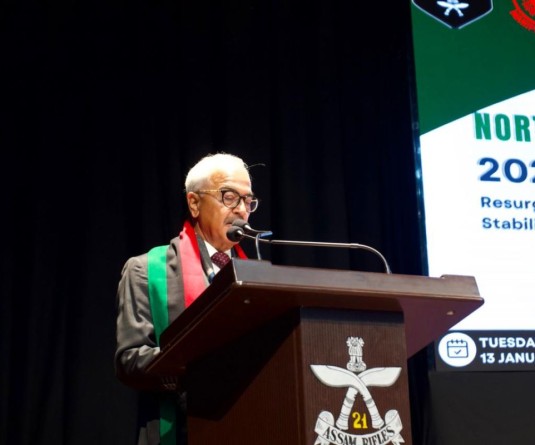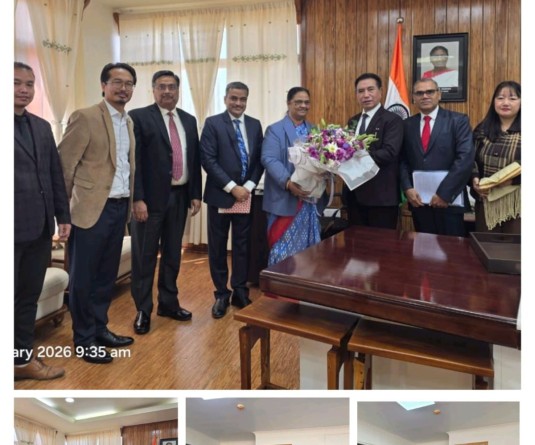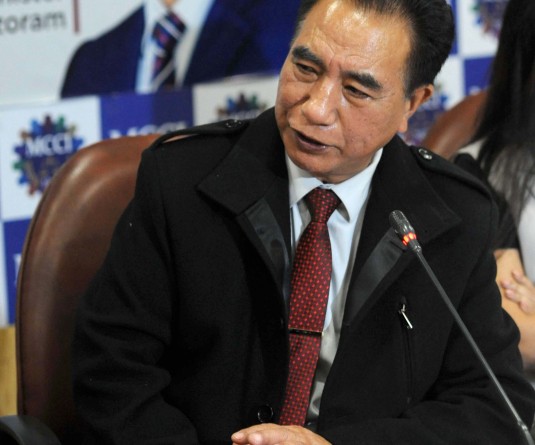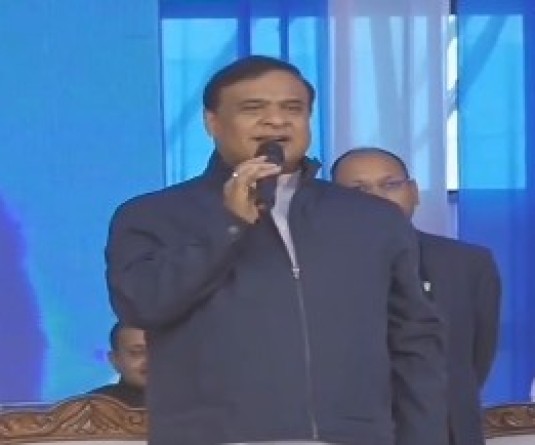
DIMAPUR, JUNE 18 (MExN): On 20th November 1989, Rights of Children received global recognition with the Convention on the rights of the Children (CRC) being adopted and opened for signature, ratification and accession by the UN member states. The Convention entered into force on 2 September 1990 and the Government of India ratified it on 11 December 1992. This was stated in a press note from Roselyn Tungoe, DICE Foundation, Kohima Nagaland.
In order to ensure that the voice and concerns of children from the Northeast region be heard at the UN, a Three daysNorth East Children consultation was conducted in Imphal in the state of Manipur with children participating from the five states i.e. Assam, Manipur, Mizoram, Tripura and Nagaland between the ages of 14 – 17 years. A total of 32 participants attended the consultation, out of which 8 students were from schools in and around Kohima, Nagaland. The DICE Foundation send the invitation to seven Schools from Kohima and from which the following schools send their students: Ministers’ Hill Baptist Higher Secondary School, Government Higher Secondary School, Fernwood School and Baptist High Secondary School. The Team of DICE Foundation would like to thank the abovementioned schools for reposing their faith in the Organization and for entrusting their students to undertake the trip to Imphal for the extremely important and useful consultation.
The resource persons for the Consultation were Enakshi Ganguly Thukral from HAQ Center for Child Rights, New Delhi, Nandini Thockchom, Director, Child and Gender Unit, Forum for Indigenous Perspectives and Action (FIPA), Imphal and Biplab from Terres Des Hommes, Kolkata.
The children spent three days learning about Child rights and giving their inputs and perspectives on Child rights prevailing in the different states of Northeast by ways of activities and group discussions. We present some of the learning experiences of the children from Nagaland.
They learned about the various aspects of child rights, beginning with questions like the following:
• Who is a child?
• Does a child know about the laws, policies, program and other mechanisms that ensure the protection of their rights?
• What do children have to say about implementation of government’s programs, laws, policies and other measures?
According to Mvuko Koza and Kamongla Longkumer from Ministers’ Hill Baptist Higher Secondary School, a child would be anyone who is below 18 years of age and depends on someone else to grow and mature.
Convention on the Rights of the Child (CRC) is a convention in which all the rights of the children are written and all the countries of the world sign the convention to agree and promise to make sure that the children get those rights enshrined in the Convention. At the same time the Countries also agreed to make an effort that each country ensuresthese rights to the children, as a result of which a committee called the UN – CRC committee was formed.
The Participants also learned about the major problems faced by the children in different states for which they are exploited. They learned that children, especially in rural areas, are deprived of their rights and were often mistreated and exploited. They are not given the chance to express their views on how they feel. Children are trafficked, discriminated and punished for committing some petty crimes.
Arishinaro Longkumer and ThejasenuoVizo from Fernwood School expressed that children have some rights such as right to good food, school, decent shelter and proper medical treatment.Freedom of Expression of views (especially in the classrooms where some teachers can be irrationally autocratic), protection from child labour, child trafficking, sexual abuse, clean environment and identity are some of the rights expressed and discussed in the consultation.They also learned about the ICESCR (InternationalCovenanton Economic Social and Cultural Rights), CRC (Civil Political Rights), CRC (Child Rights Committee) which ensures the safety and security of the rights of a child.
Kholi Chachei and Bendangtula Walling learned about the importance of the CHILDLINE (1098).1098is a phone number that spells hope for millions of children across India. CHILDLINE is India’s first 24-hour, free, emergency phone service for children in need of aid and assistance. Any concerned adult or a child in need of help can dial 1098, the toll free number to access the serviceswhere any child in distresscan call up this number to secure justice. In case of any children involved in criminal activity or going against the law the case is to be taken up by the Juvenile Police station which must have a special officer, known as Juvenile Police Officer.
Neikerhelie Nakhro and Eharangbe Whiso from Government higher secondary School,opined that proper education should be given to the children and awareness on sex education and HIV/AIDS should be given to the unreached childrenand made compulsory in schools.
The children from Nagaland participated actively and also made presentations on the problems faced by the children in the state of Nagaland. They listed down the problems in Nagaland as:
1. Poor maintenance of roads and lack of transportation in rural areas,
2. Lack of proper power supply in remote areas effecting the students,
3. Corporal punishment at schools, home or outside,
4. Lack of Freedom of expressions in schools, home or in the society,
5. Molestation and harassment at Schools
6. Poor maintenance of schools including lack of basic requirements like teacher, furniture orbooks.
They also made a Commitment of the things they would do after they get back home and some of which are listed below:
1. Eradicate child labor in Nagaland,
2. Fight for freedom of expression and views right from their classrooms,
3. Request the government to set up CHILDLINE in Nagaland,
4. To stop corporalpunishment and make it illegal in Schools in Nagaland,
5. Request all the NGO’s to organize seminarsand workshopsto spread awareness about Child Rights.
In order to ensure that the voice and concerns of children from the Northeast region be heard at the UN, a Three daysNorth East Children consultation was conducted in Imphal in the state of Manipur with children participating from the five states i.e. Assam, Manipur, Mizoram, Tripura and Nagaland between the ages of 14 – 17 years. A total of 32 participants attended the consultation, out of which 8 students were from schools in and around Kohima, Nagaland. The DICE Foundation send the invitation to seven Schools from Kohima and from which the following schools send their students: Ministers’ Hill Baptist Higher Secondary School, Government Higher Secondary School, Fernwood School and Baptist High Secondary School. The Team of DICE Foundation would like to thank the abovementioned schools for reposing their faith in the Organization and for entrusting their students to undertake the trip to Imphal for the extremely important and useful consultation.
The resource persons for the Consultation were Enakshi Ganguly Thukral from HAQ Center for Child Rights, New Delhi, Nandini Thockchom, Director, Child and Gender Unit, Forum for Indigenous Perspectives and Action (FIPA), Imphal and Biplab from Terres Des Hommes, Kolkata.
The children spent three days learning about Child rights and giving their inputs and perspectives on Child rights prevailing in the different states of Northeast by ways of activities and group discussions. We present some of the learning experiences of the children from Nagaland.
They learned about the various aspects of child rights, beginning with questions like the following:
• Who is a child?
• Does a child know about the laws, policies, program and other mechanisms that ensure the protection of their rights?
• What do children have to say about implementation of government’s programs, laws, policies and other measures?
According to Mvuko Koza and Kamongla Longkumer from Ministers’ Hill Baptist Higher Secondary School, a child would be anyone who is below 18 years of age and depends on someone else to grow and mature.
Convention on the Rights of the Child (CRC) is a convention in which all the rights of the children are written and all the countries of the world sign the convention to agree and promise to make sure that the children get those rights enshrined in the Convention. At the same time the Countries also agreed to make an effort that each country ensuresthese rights to the children, as a result of which a committee called the UN – CRC committee was formed.
The Participants also learned about the major problems faced by the children in different states for which they are exploited. They learned that children, especially in rural areas, are deprived of their rights and were often mistreated and exploited. They are not given the chance to express their views on how they feel. Children are trafficked, discriminated and punished for committing some petty crimes.
Arishinaro Longkumer and ThejasenuoVizo from Fernwood School expressed that children have some rights such as right to good food, school, decent shelter and proper medical treatment.Freedom of Expression of views (especially in the classrooms where some teachers can be irrationally autocratic), protection from child labour, child trafficking, sexual abuse, clean environment and identity are some of the rights expressed and discussed in the consultation.They also learned about the ICESCR (InternationalCovenanton Economic Social and Cultural Rights), CRC (Civil Political Rights), CRC (Child Rights Committee) which ensures the safety and security of the rights of a child.
Kholi Chachei and Bendangtula Walling learned about the importance of the CHILDLINE (1098).1098is a phone number that spells hope for millions of children across India. CHILDLINE is India’s first 24-hour, free, emergency phone service for children in need of aid and assistance. Any concerned adult or a child in need of help can dial 1098, the toll free number to access the serviceswhere any child in distresscan call up this number to secure justice. In case of any children involved in criminal activity or going against the law the case is to be taken up by the Juvenile Police station which must have a special officer, known as Juvenile Police Officer.
Neikerhelie Nakhro and Eharangbe Whiso from Government higher secondary School,opined that proper education should be given to the children and awareness on sex education and HIV/AIDS should be given to the unreached childrenand made compulsory in schools.
The children from Nagaland participated actively and also made presentations on the problems faced by the children in the state of Nagaland. They listed down the problems in Nagaland as:
1. Poor maintenance of roads and lack of transportation in rural areas,
2. Lack of proper power supply in remote areas effecting the students,
3. Corporal punishment at schools, home or outside,
4. Lack of Freedom of expressions in schools, home or in the society,
5. Molestation and harassment at Schools
6. Poor maintenance of schools including lack of basic requirements like teacher, furniture orbooks.
They also made a Commitment of the things they would do after they get back home and some of which are listed below:
1. Eradicate child labor in Nagaland,
2. Fight for freedom of expression and views right from their classrooms,
3. Request the government to set up CHILDLINE in Nagaland,
4. To stop corporalpunishment and make it illegal in Schools in Nagaland,
5. Request all the NGO’s to organize seminarsand workshopsto spread awareness about Child Rights.






